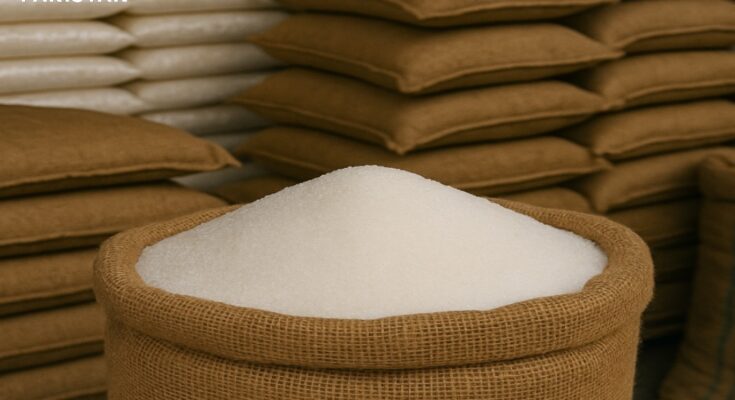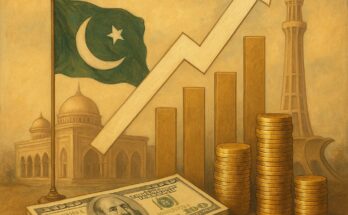Karachi, Pakistan — A new crisis is looming over Karachi markets as sugar mills have reportedly suspended supply, sparking fears of an immediate increase in sugar prices. According to trade insiders, the suspension has already disrupted wholesale markets, with no fresh stock arriving from mills.
Supply Halt Raises Alarms
Sources confirmed that sugar supply from mills has completely stopped, while imported consignments may take up to three weeks to reach Pakistan. This gap in supply is expected to create a short-term shortage, pushing retail and wholesale prices higher.
As of September 8, the ex-mill sugar price stood at Rs175 per kg, while the wholesale price was Rs179 per kg. Market experts warn that prices could surge further if the situation is not controlled quickly.
Accusations of Artificial Shortage
Concerns are growing that mill owners may have artificially created the shortage to manipulate the market. By halting supply, critics argue, millers could be aiming to release their stock later at inflated prices, burdening both wholesalers and ordinary consumers.
Rauf Ibrahim, Chairman of the Wholesale Grocers Association, has sounded the alarm over the crisis. He urged the federal government to take strict action against sugar mill owners in Sindh, ensuring the immediate resumption of supply.
Impact on Karachi’s Wholesale Market
The suspension has already unsettled wholesale dealers, who are struggling to secure enough stock for local demand. With imports delayed and domestic supply cut off, the possibility of a sharp price hike seems inevitable. This could further fuel inflation at a time when households are already grappling with rising food costs.
Call for Government Intervention
Industry representatives stress that urgent government intervention is essential to:
Prevent hoarding and artificial shortages.
Stabilize sugar prices in Karachi markets.
Protect consumers from exploitative practices by mill owners.
Failure to act swiftly could worsen the sugar crisis, adding pressure to Pakistan’s already fragile economy.
—
Disclaimer: This article is for informational purposes only and does not constitute financial advice.



